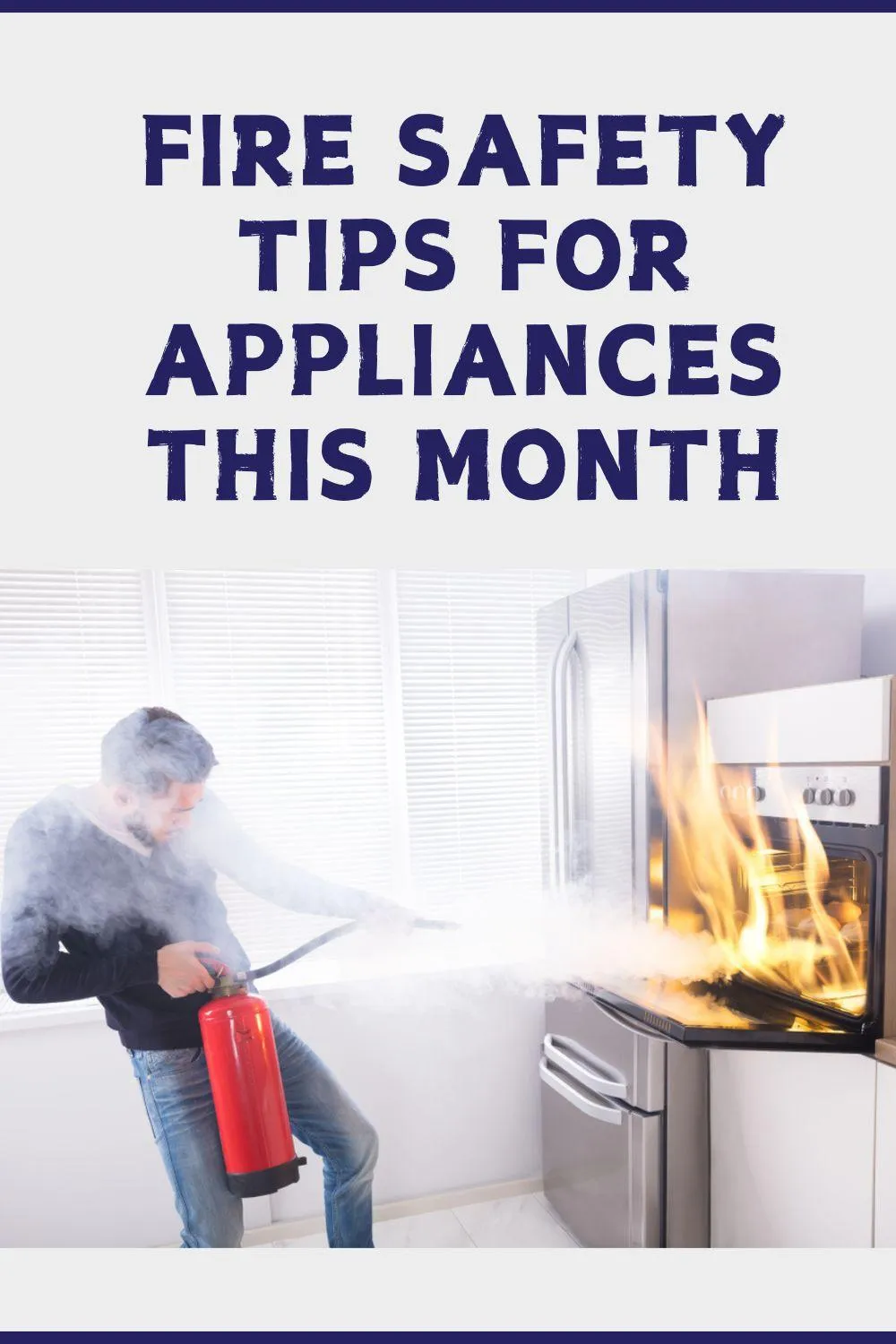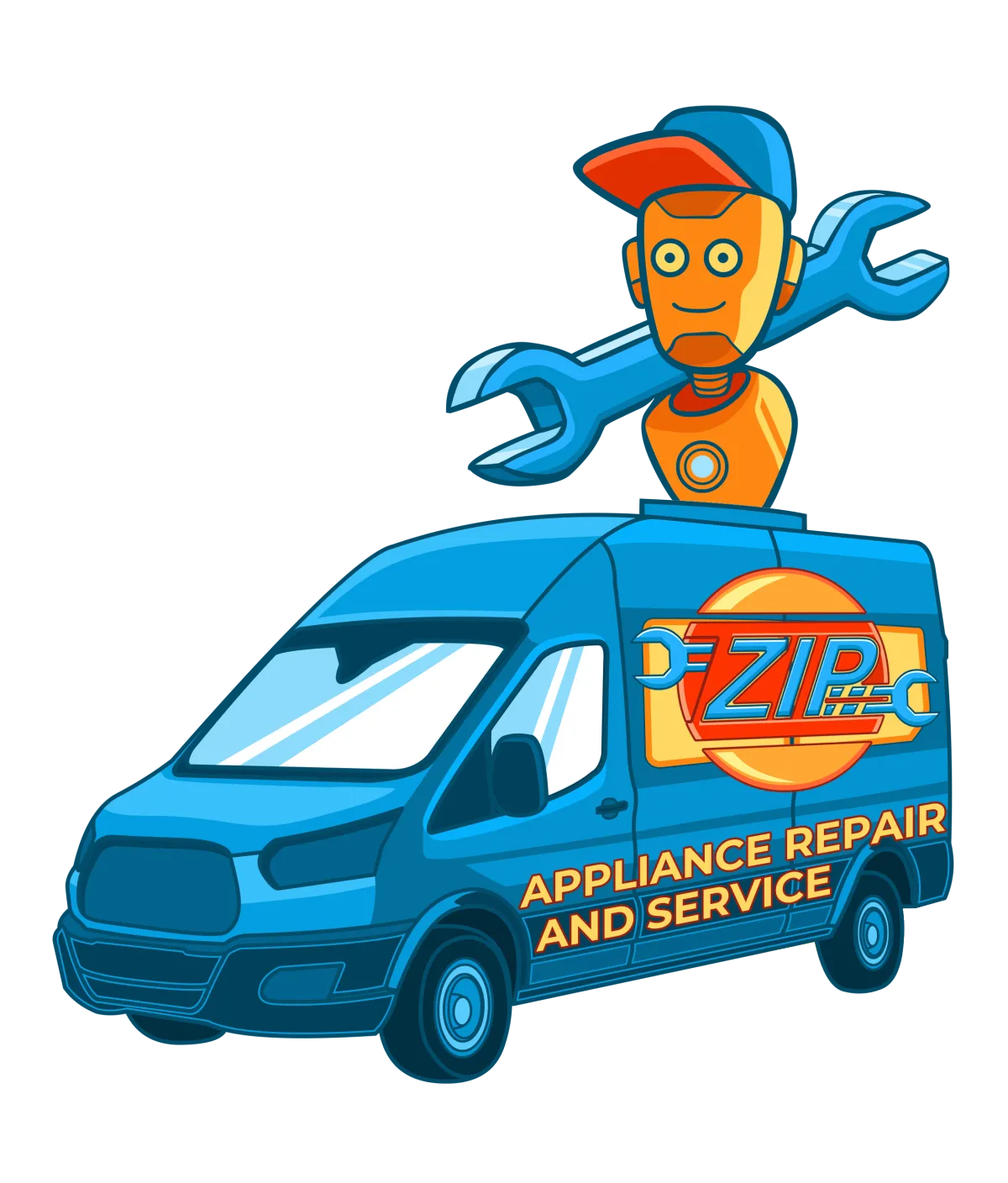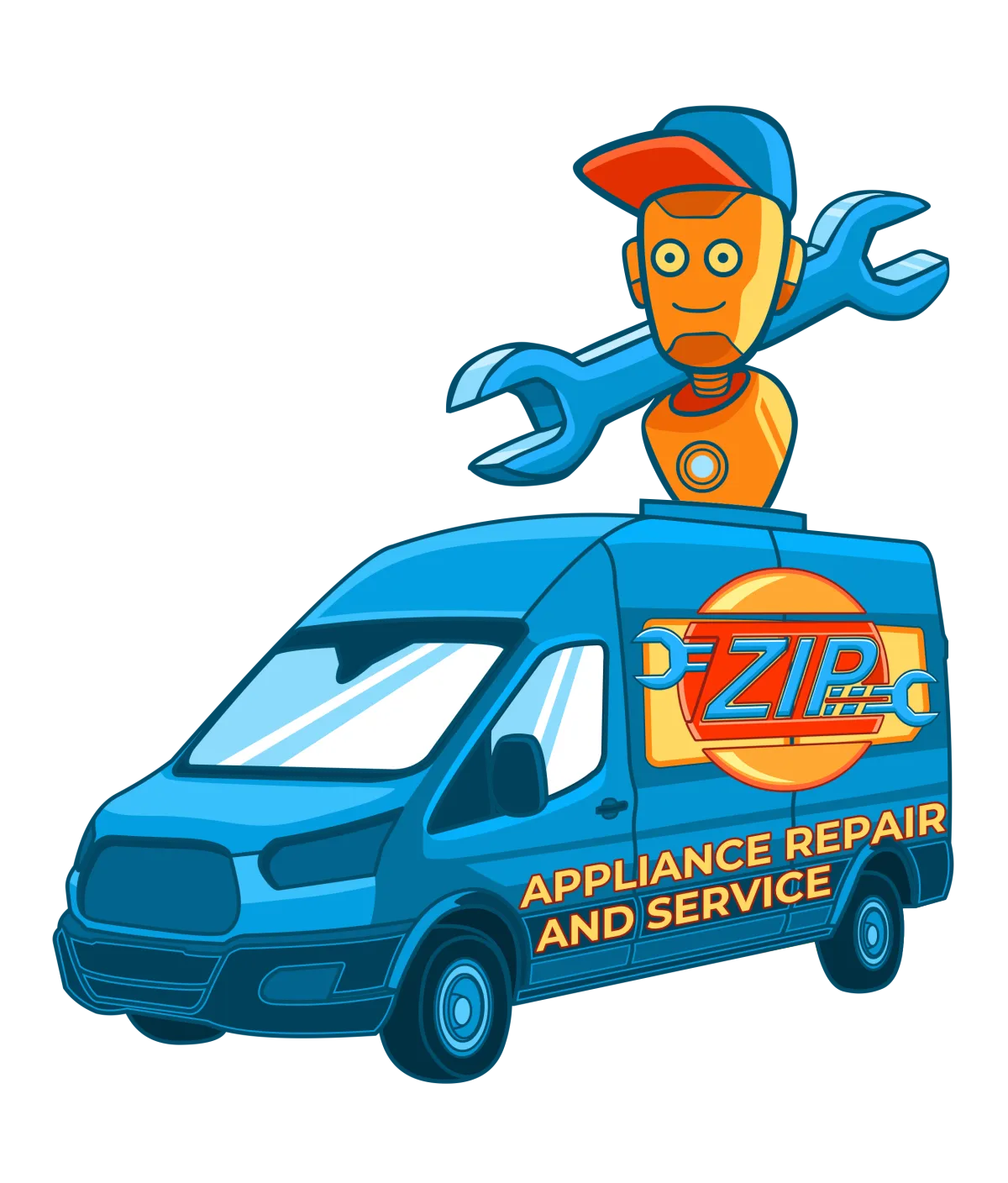THE FASTEST TOOLS IN TOWN
ZIP APPLIANCE REPAIR & SERVICE
Phone: (559) 272-4265
Phone: (559) 272-4265
Appliance Repair Tips For Fresno, CA Residents

Keep Your Appliances Safe: Fire Safety Tips You Need
"Empower your home with knowledge; keep your appliances safe with essential fire safety tips that protect your loved ones and prevent disasters." - Appliance Boss
Introduction
Fire safety is an often-overlooked aspect of home maintenance that can mean the difference between life and death. As we depend increasingly on various home appliances, understanding the potential risks associated with them becomes paramount. This article provides essential tips for ensuring that your appliances remain safe and functional, helping to protect your home and loved ones from fire hazards.
Understanding the Importance of Fire Safety for Appliances
Every year, countless homes experience devastating fires caused by appliances that are either misused or poorly maintained. From the humble toaster to high-efficiency washers, these devices can turn from useful allies into dangerous adversaries. Recognizing the importance of fire safety in relation to appliances is crucial, as even minor lapses in care can lead to catastrophic outcomes.

The Dangers of Neglected Appliances
Neglected appliances often carry hidden dangers. Dust and grime can accumulate in hard-to-reach areas, creating a flammable layer that may ignite without warning. Faulty wiring and outdated components can lead to overheating or electrical malfunctions. By neglecting routine checks and maintenance, homeowners inadvertently transform everyday appliances into ticking time bombs.
How Common Appliance Hazards Lead to Fires
Several common hazards can lead to fires in the home. Faulty electrical wiring, overloading circuits, and malfunctioning thermostats can initiate a chain reaction that culminates in flames. Moreover, the improper use of extension cords and power strips increases the risk, often leading to electrical fires that spread rapidly. Understanding these hazards is the first step in mitigating potential risks.
Essential Fire Safety Tips for Every Home
Implementing fire safety tips is an essential practice for every homeowner. Awareness and proactive measures can drastically reduce the likelihood of a fire. Regular inspections, appropriate placement of appliances, and understanding how to use them safely are all critical components of a comprehensive fire safety plan.
Regular Inspections: Your First Line of Defense
Regular inspections should be your first line of defense against potential appliance fires. By scheduling routine checks, you can identify issues before they escalate. Make it a habit to inspect each appliance in your home every few months. Look for frayed cords, unusual noises, or excessive heat during operation. These small observations can save lives.
How to Conduct a Comprehensive Appliance Check
Conducting a comprehensive appliance check requires attention to detail. Start by unplugging the appliance and examining the power cord for any signs of wear or damage. Next, inspect the housing for any cracks or burns. Ensure that the appliance is clean and free from dust buildup. Finally, refer to the user manual for specific maintenance guidelines tailored to that particular appliance.
Identifying Signs of Wear and Tear
Recognizing signs of wear and tear is crucial for maintaining appliance safety. Look for changes in performance, such as decreased efficiency or strange noises. Watch for discoloration or charring around plugs and sockets. Any irregularities warrant immediate attention and should not be ignored.
Electrical Safety: The Key to Appliance Protection
Electrical safety is paramount for protecting your home from appliance fires. Avoid using appliances that have frayed cords or damaged plugs. If a device repeatedly blows a fuse or trips a breaker, it may indicate an underlying electrical problem. Don’t hesitate to consult a qualified electrician for troubleshooting.
Avoiding Overloaded Circuits and Power Strips
Overloading circuits and power strips is a common practice that can lead to disastrous consequences. Each outlet has a specific load capacity, and exceeding that limit increases the risk of overheating and fire. Use power strips with built-in circuit breakers, and avoid daisy-chaining multiple strips together.
The Importance of Using the Right Wattage
Using the correct wattage for your appliances is vital. Overloading a circuit with high-wattage devices can cause overheating and potential fires. Always check the appliance label for its wattage requirements and ensure that your outlets can accommodate them safely.
Safe Appliance Placement: Out of Harm’s Way
Proper placement of appliances can minimize fire risks. Keep flammable materials, such as paper and cloth, away from heat sources. Ensure that appliances are positioned on stable surfaces and have adequate ventilation to prevent overheating.
Creating Safe Zones Around Appliances
Creating safe zones around your appliances is an effective way to prevent fire hazards. Maintain a clear area of at least three feet around major appliances like ovens and dryers. This practice not only promotes safety but also allows for easier access during emergencies.
Stove and Oven Safety: Cooking Without Fear
Cooking is one of the leading causes of home fires, making stove and oven safety essential. Never leave cooking food unattended and keep flammable items away from the stovetop. If a fire does break out, remember to turn off the heat and cover the flames with a lid or a fire blanket, rather than using water.
Best Practices for Using Your Kitchen Appliances
Employing best practices while using kitchen appliances can significantly enhance fire safety. Always use appliances according to the manufacturer's guidelines, and never overload them. Regularly clean appliances to prevent grease buildup, which can ignite easily.
How to Prevent Cooking-Related Fires
Preventing cooking-related fires involves a few simple steps. Always keep a fire extinguisher within reach in the kitchen. Utilize timers to remind yourself of cooking times, and consider using smart home technology to alert you when meals are ready or if something goes awry.
Keeping Your Laundry Room Safe
The laundry room can also pose fire risks, particularly from dryers. Lint buildup is a common culprit that can ignite if not addressed. Regularly clean lint traps and ducts to ensure safe operation. Always follow the manufacturer's instructions for drying times and load sizes.
Dryer Maintenance: A Crucial Step to Fire Prevention
Dryer maintenance is crucial for preventing fires. Over time, lint accumulates in the dryer and its venting system, increasing fire risks. Make it a habit to clean the lint trap after each use and schedule professional cleaning of the dryer vent at least once a year.
Cleaning Lint Traps and Vents
Cleaning lint traps and vents is a straightforward yet essential task. After every drying cycle, empty the lint trap to enhance airflow and prevent overheating. Additionally, regularly check the vent outside your home to ensure it’s not blocked by lint or debris.
Understanding the Risks of Using Space Heaters
Space heaters can be lifesavers during chilly months but can also pose significant fire risks if used improperly. They should never be left unattended and should always be placed on a flat, stable surface, away from flammable materials.
Space Heater Safety: What You Need to Know
To ensure space heater safety, select models with built-in safety features like automatic shut-off. Use them as a temporary solution rather than a permanent heat source. Always plug space heaters directly into a wall outlet and never into an extension cord.
Fire Extinguishers: A Must-Have in Every Home
Every home should have at least one fire extinguisher readily available. Choose an extinguisher rated for Class A, B, and C fires to handle a variety of potential hazards. Place it in easily accessible areas, particularly in the kitchen and laundry room.
Choosing the Right Fire Extinguisher for Appliance Fires
Selecting the right fire extinguisher for appliance fires is critical. Class B extinguishers are ideal for flammable liquids, while Class C extinguishers are suited for electrical fires. Familiarize yourself with how to use an extinguisher effectively; remember the acronym PASS—Pull, Aim, Squeeze, and Sweep.
When to Call a Professional for Repairs
Knowing when to call a professional for appliance repairs can save lives. If you encounter persistent problems, such as overheating, unusual noises, or malfunctioning features, it’s time to seek expert help. Do not attempt to fix complex electrical issues on your own.
Signs That Your Appliances Need Expert Attention
Signs that your appliances need expert attention include frequent circuit trips, strange odors, or discoloration around electrical outlets. If you observe any of these warning signals, take immediate action to prevent further risks.
Community Resources for Fire Safety Awareness
Local communities often provide resources for fire safety awareness. Engage with your local fire department for educational programs, workshops, and safety checks. Staying informed about fire safety measures can enhance your overall preparedness.
Engaging with Local Fire Departments and Workshops
Consider participating in workshops hosted by local fire departments. These sessions often cover essential fire safety topics, including appliance maintenance and emergency preparedness. Knowledge is power, and engaging with experts can equip you with valuable information.
Preparing Your Family for Fire Emergencies
Preparing your family for fire emergencies is crucial for safety. Conduct fire drills to ensure everyone knows their escape routes and meeting points. Regularly review your emergency plan to keep it fresh in everyone’s mind.
Fire Drills: Practice Makes Perfect
Conducting fire drills is an essential practice that can save lives. Schedule regular drills, so everyone in your household knows what to do when the alarm sounds. Familiarize your family with the sound of smoke alarms and the importance of staying low to the ground during an escape.
Creating an Emergency Plan for Appliance Fires
Developing an emergency plan specifically for appliance fires is vital. Identify the safest exit routes from each room, designate a meeting place outside, and ensure that everyone knows how to call for help. Communication and preparedness can make all the difference.
Conclusion
Fire safety is not just an option; it’s a necessity. By following these essential tips, you can significantly reduce the risk of appliance-related fires in your home. Empower yourself and your family by staying informed and proactive, making your living space safer for everyone. Regular maintenance, proper usage, and community engagement are all integral to ensuring that your home remains a safe haven. Embrace these practices and protect what matters most. For additional support and professional services, reach out to Zip Appliance Repair and Service at fresno.ziprepairservice.com or call (559) 272-4265. Your safety is our priority!

Keep Your Appliances Safe: Fire Safety Tips You Need
"Empower your home with knowledge; keep your appliances safe with essential fire safety tips that protect your loved ones and prevent disasters." - Appliance Boss
Introduction
Fire safety is an often-overlooked aspect of home maintenance that can mean the difference between life and death. As we depend increasingly on various home appliances, understanding the potential risks associated with them becomes paramount. This article provides essential tips for ensuring that your appliances remain safe and functional, helping to protect your home and loved ones from fire hazards.
Understanding the Importance of Fire Safety for Appliances
Every year, countless homes experience devastating fires caused by appliances that are either misused or poorly maintained. From the humble toaster to high-efficiency washers, these devices can turn from useful allies into dangerous adversaries. Recognizing the importance of fire safety in relation to appliances is crucial, as even minor lapses in care can lead to catastrophic outcomes.

The Dangers of Neglected Appliances
Neglected appliances often carry hidden dangers. Dust and grime can accumulate in hard-to-reach areas, creating a flammable layer that may ignite without warning. Faulty wiring and outdated components can lead to overheating or electrical malfunctions. By neglecting routine checks and maintenance, homeowners inadvertently transform everyday appliances into ticking time bombs.
How Common Appliance Hazards Lead to Fires
Several common hazards can lead to fires in the home. Faulty electrical wiring, overloading circuits, and malfunctioning thermostats can initiate a chain reaction that culminates in flames. Moreover, the improper use of extension cords and power strips increases the risk, often leading to electrical fires that spread rapidly. Understanding these hazards is the first step in mitigating potential risks.
Essential Fire Safety Tips for Every Home
Implementing fire safety tips is an essential practice for every homeowner. Awareness and proactive measures can drastically reduce the likelihood of a fire. Regular inspections, appropriate placement of appliances, and understanding how to use them safely are all critical components of a comprehensive fire safety plan.
Regular Inspections: Your First Line of Defense
Regular inspections should be your first line of defense against potential appliance fires. By scheduling routine checks, you can identify issues before they escalate. Make it a habit to inspect each appliance in your home every few months. Look for frayed cords, unusual noises, or excessive heat during operation. These small observations can save lives.
How to Conduct a Comprehensive Appliance Check
Conducting a comprehensive appliance check requires attention to detail. Start by unplugging the appliance and examining the power cord for any signs of wear or damage. Next, inspect the housing for any cracks or burns. Ensure that the appliance is clean and free from dust buildup. Finally, refer to the user manual for specific maintenance guidelines tailored to that particular appliance.
Identifying Signs of Wear and Tear
Recognizing signs of wear and tear is crucial for maintaining appliance safety. Look for changes in performance, such as decreased efficiency or strange noises. Watch for discoloration or charring around plugs and sockets. Any irregularities warrant immediate attention and should not be ignored.
Electrical Safety: The Key to Appliance Protection
Electrical safety is paramount for protecting your home from appliance fires. Avoid using appliances that have frayed cords or damaged plugs. If a device repeatedly blows a fuse or trips a breaker, it may indicate an underlying electrical problem. Don’t hesitate to consult a qualified electrician for troubleshooting.
Avoiding Overloaded Circuits and Power Strips
Overloading circuits and power strips is a common practice that can lead to disastrous consequences. Each outlet has a specific load capacity, and exceeding that limit increases the risk of overheating and fire. Use power strips with built-in circuit breakers, and avoid daisy-chaining multiple strips together.
The Importance of Using the Right Wattage
Using the correct wattage for your appliances is vital. Overloading a circuit with high-wattage devices can cause overheating and potential fires. Always check the appliance label for its wattage requirements and ensure that your outlets can accommodate them safely.
Safe Appliance Placement: Out of Harm’s Way
Proper placement of appliances can minimize fire risks. Keep flammable materials, such as paper and cloth, away from heat sources. Ensure that appliances are positioned on stable surfaces and have adequate ventilation to prevent overheating.
Creating Safe Zones Around Appliances
Creating safe zones around your appliances is an effective way to prevent fire hazards. Maintain a clear area of at least three feet around major appliances like ovens and dryers. This practice not only promotes safety but also allows for easier access during emergencies.
Stove and Oven Safety: Cooking Without Fear
Cooking is one of the leading causes of home fires, making stove and oven safety essential. Never leave cooking food unattended and keep flammable items away from the stovetop. If a fire does break out, remember to turn off the heat and cover the flames with a lid or a fire blanket, rather than using water.
Best Practices for Using Your Kitchen Appliances
Employing best practices while using kitchen appliances can significantly enhance fire safety. Always use appliances according to the manufacturer's guidelines, and never overload them. Regularly clean appliances to prevent grease buildup, which can ignite easily.
How to Prevent Cooking-Related Fires
Preventing cooking-related fires involves a few simple steps. Always keep a fire extinguisher within reach in the kitchen. Utilize timers to remind yourself of cooking times, and consider using smart home technology to alert you when meals are ready or if something goes awry.
Keeping Your Laundry Room Safe
The laundry room can also pose fire risks, particularly from dryers. Lint buildup is a common culprit that can ignite if not addressed. Regularly clean lint traps and ducts to ensure safe operation. Always follow the manufacturer's instructions for drying times and load sizes.
Dryer Maintenance: A Crucial Step to Fire Prevention
Dryer maintenance is crucial for preventing fires. Over time, lint accumulates in the dryer and its venting system, increasing fire risks. Make it a habit to clean the lint trap after each use and schedule professional cleaning of the dryer vent at least once a year.
Cleaning Lint Traps and Vents
Cleaning lint traps and vents is a straightforward yet essential task. After every drying cycle, empty the lint trap to enhance airflow and prevent overheating. Additionally, regularly check the vent outside your home to ensure it’s not blocked by lint or debris.
Understanding the Risks of Using Space Heaters
Space heaters can be lifesavers during chilly months but can also pose significant fire risks if used improperly. They should never be left unattended and should always be placed on a flat, stable surface, away from flammable materials.
Space Heater Safety: What You Need to Know
To ensure space heater safety, select models with built-in safety features like automatic shut-off. Use them as a temporary solution rather than a permanent heat source. Always plug space heaters directly into a wall outlet and never into an extension cord.
Fire Extinguishers: A Must-Have in Every Home
Every home should have at least one fire extinguisher readily available. Choose an extinguisher rated for Class A, B, and C fires to handle a variety of potential hazards. Place it in easily accessible areas, particularly in the kitchen and laundry room.
Choosing the Right Fire Extinguisher for Appliance Fires
Selecting the right fire extinguisher for appliance fires is critical. Class B extinguishers are ideal for flammable liquids, while Class C extinguishers are suited for electrical fires. Familiarize yourself with how to use an extinguisher effectively; remember the acronym PASS—Pull, Aim, Squeeze, and Sweep.
When to Call a Professional for Repairs
Knowing when to call a professional for appliance repairs can save lives. If you encounter persistent problems, such as overheating, unusual noises, or malfunctioning features, it’s time to seek expert help. Do not attempt to fix complex electrical issues on your own.
Signs That Your Appliances Need Expert Attention
Signs that your appliances need expert attention include frequent circuit trips, strange odors, or discoloration around electrical outlets. If you observe any of these warning signals, take immediate action to prevent further risks.
Community Resources for Fire Safety Awareness
Local communities often provide resources for fire safety awareness. Engage with your local fire department for educational programs, workshops, and safety checks. Staying informed about fire safety measures can enhance your overall preparedness.
Engaging with Local Fire Departments and Workshops
Consider participating in workshops hosted by local fire departments. These sessions often cover essential fire safety topics, including appliance maintenance and emergency preparedness. Knowledge is power, and engaging with experts can equip you with valuable information.
Preparing Your Family for Fire Emergencies
Preparing your family for fire emergencies is crucial for safety. Conduct fire drills to ensure everyone knows their escape routes and meeting points. Regularly review your emergency plan to keep it fresh in everyone’s mind.
Fire Drills: Practice Makes Perfect
Conducting fire drills is an essential practice that can save lives. Schedule regular drills, so everyone in your household knows what to do when the alarm sounds. Familiarize your family with the sound of smoke alarms and the importance of staying low to the ground during an escape.
Creating an Emergency Plan for Appliance Fires
Developing an emergency plan specifically for appliance fires is vital. Identify the safest exit routes from each room, designate a meeting place outside, and ensure that everyone knows how to call for help. Communication and preparedness can make all the difference.
Conclusion
Fire safety is not just an option; it’s a necessity. By following these essential tips, you can significantly reduce the risk of appliance-related fires in your home. Empower yourself and your family by staying informed and proactive, making your living space safer for everyone. Regular maintenance, proper usage, and community engagement are all integral to ensuring that your home remains a safe haven. Embrace these practices and protect what matters most. For additional support and professional services, reach out to Zip Appliance Repair and Service at fresno.ziprepairservice.com or call (559) 272-4265. Your safety is our priority!
If your dryer has been giving you problems, contact Zip Appliance Repair & Service at (559) 272-4265

Appliance Repair In A Zip
If you need a dryer repair call our Team at (559) 272-4265, or visit our online scheduling page to request service.
Appliance Repair
HAVE A QUESTION, CALL (559) 272-4265

Online Offers
Take advantage of our online discount offers - save time and money...

Residential & Commercial appliances
See what our company can do for you

Appliance Repair Tips
If your appliance is not working properly...

1405 Commercial Way ste 100
Bakersfield, CA 93309
Lic # 1116346
Equipment We Sevice
- A Call To Confirm Your Appointment Time
- A Email Detailing Your Assigned Technician
- Information Needed Before The Repair Can Be Started
- An Estimate Of Work To Be Done
© 2025 ZIP APPLIANCE REPAIR & SERVICE LLC







